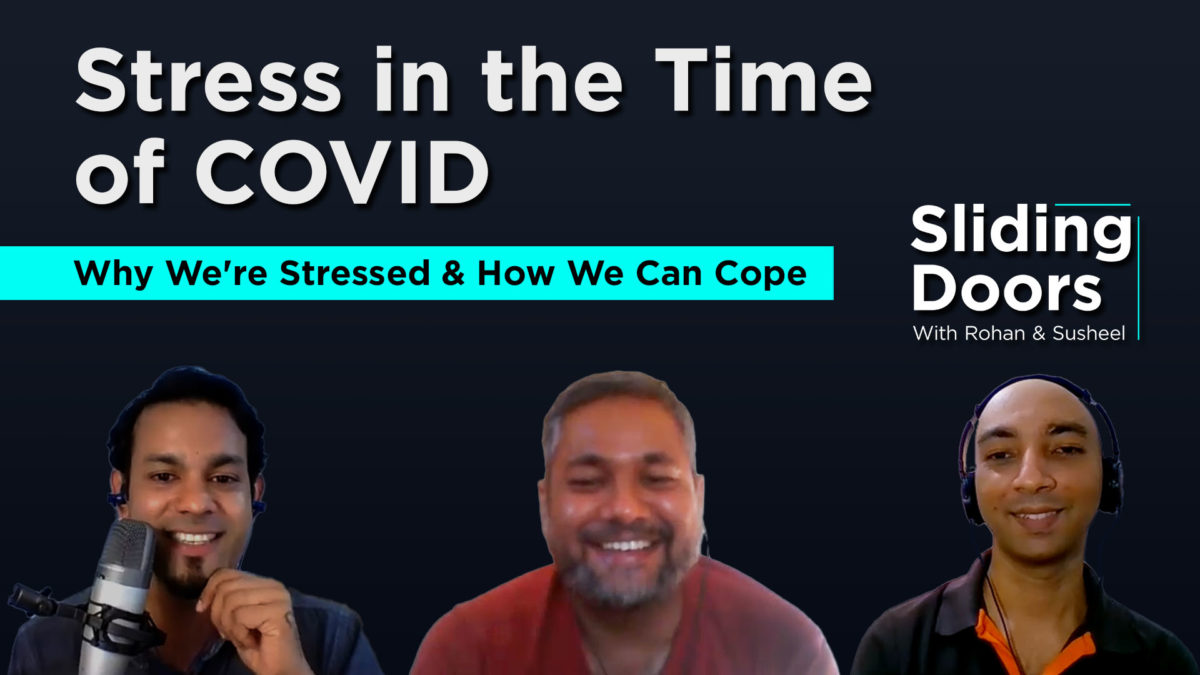The pandemic is stripping us of many of our coping strategies for stress. We’re in lockdown, we’re getting crazier deadlines, and there’s a virus spreading in our community. But do we need to be spiralling out of control? In this episode, Susheel and Rohan explore these issues and then invite neuropsychologist Anirudh George to share his take on them.

